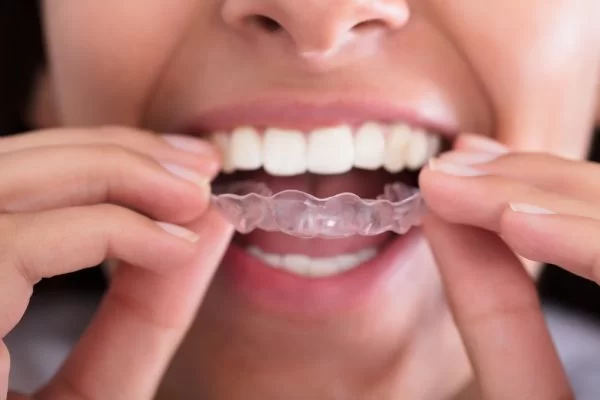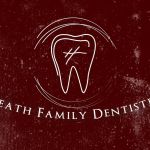
1. Understanding Night Grinding and Its Effects
Night grinding, also known as bruxism, is a condition where you unconsciously grind, gnash, or clench your teeth while sleeping. This common issue affects millions of people worldwide, and many don’t even realize they’re doing it. Over time, night grinding can lead to significant wear and tear on your teeth, causing sensitivity, pain, and even permanent damage.
Aside from the damage to your teeth, bruxism can lead to headaches, jaw pain, and muscle tension in the neck and shoulders. It’s essential to understand the potential consequences of untreated night grinding so that you can take steps to protect your oral health.
2. Causes and Risks of Night Grinding
Night grinding can be caused by various factors, including stress, anxiety, sleep disorders, and even misalignment of your teeth. People who are under a lot of emotional stress often find themselves grinding their teeth as a response to tension. Others may grind their teeth due to an improper bite, or as a side effect of certain medications.
If left untreated, the risks of night grinding can escalate. Constant grinding can wear down tooth enamel, leading to cavities, broken teeth, or even tooth loss in severe cases. The pressure on the jaw muscles can also lead to temporomandibular joint (TMJ) disorders, which can cause pain and difficulty opening the mouth. Additionally, night grinding may cause you to wake up feeling fatigued or have a disrupted sleep cycle.
3. How to Prevent Night Grinding
Protecting your teeth from night grinding starts with identifying the root cause. If stress is the primary factor, learning relaxation techniques like meditation or yoga before bed can help ease tension and reduce grinding. Another option is using a nightguard or mouthguard to prevent teeth from grinding against each other while you sleep. These dental devices act as a protective barrier, reducing the impact of grinding and protecting your teeth from damage.
In addition to wearing a nightguard, visiting your dentist for regular checkups is crucial. They can detect signs of bruxism early and recommend the best treatment options. For people with misaligned teeth, orthodontic treatments such as braces can help prevent grinding caused by an improper bite.
4. Real-Life Cases of Night Grinding Damage
Consider Sarah, a 34-year-old professional who experienced chronic jaw pain for years. She had no idea that she was grinding her teeth at night until a visit to her dentist revealed the damage. Sarah’s teeth were worn down to the point of sensitivity, and she had developed TMJ symptoms. Her dentist fitted her with a nightguard, which significantly alleviated her discomfort and protected her teeth from further damage.
Another case involved James, a 40-year-old man who unknowingly ground his teeth for years while sleeping. By the time he sought treatment, his teeth had developed several cracks. After using a nightguard, James also received therapy to address his sleep issues and reduce stress, which helped reduce his grinding episodes.
5. The Importance of Seeking Treatment for Night Grinding
Addressing night grinding early can save you from expensive dental treatments and long-term oral health problems. If you experience any symptoms of bruxism, such as waking up with a sore jaw, headaches, or visibly worn-down teeth, it’s important to seek help from your dentist as soon as possible. Early intervention can prevent irreversible damage and ensure that your teeth and jaw remain in good health for years to come.
In addition to protecting your teeth, seeking treatment for night grinding can improve your overall well-being by reducing stress and enhancing your quality of sleep. Don’t wait for the damage to worsen—take action today and protect your smile from the consequences of night grinding.







 East Hill Dental5.0 (156 review)
East Hill Dental5.0 (156 review) Access Dental, Dentures & Implants4.0 (426 review)
Access Dental, Dentures & Implants4.0 (426 review) Surya P. Dhakar DDS, PC4.0 (250 review)
Surya P. Dhakar DDS, PC4.0 (250 review) Sage Dental of Windermere4.0 (423 review)
Sage Dental of Windermere4.0 (423 review) Dino M. DeFilippis, DDS4.0 (10 review)
Dino M. DeFilippis, DDS4.0 (10 review) Heath Family Dentistry0.0 (0 review)
Heath Family Dentistry0.0 (0 review) The Importance of Oral Health Education During Pregnancy for a Healthy Pregnancy
The Importance of Oral Health Education During Pregnancy for a Healthy Pregnancy Best Tips for Brushing Your Teeth Properly for Healthy Gums: Essential Techniques for Oral Health
Best Tips for Brushing Your Teeth Properly for Healthy Gums: Essential Techniques for Oral Health Why Skipping Dental Checkups Can Lead to Bigger Oral Health Problems
Why Skipping Dental Checkups Can Lead to Bigger Oral Health Problems Advantages of Porcelain Dental Restorations
Advantages of Porcelain Dental Restorations How Can Diabetes Cause Tooth and Gum Problems? Preventing and Managing Oral Health Issues
How Can Diabetes Cause Tooth and Gum Problems? Preventing and Managing Oral Health Issues Healthy Habits for Promoting Good Oral Health and Hygiene: Tips for a Healthy Smile
Healthy Habits for Promoting Good Oral Health and Hygiene: Tips for a Healthy Smile